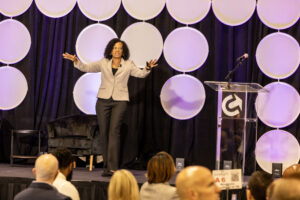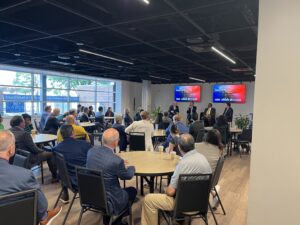When I was a graduate student, a professor said the department was struggling to recruit competitive Black students. He reasoned that our program’s academic rigors were deterring students from applying. What my professor failed to recognize was the power of choice among Black students. The students our doctoral program sought to attract were rejecting us for other institutions that were equally rigorous, but more engaged in their success. In other words, the program was not rejecting Black students but Black students were rejecting the program.
Today, many companies are experiencing an organizational disconnect that’s limiting them from attracting, retaining and developing diverse talent. Some companies may find themselves unable to compete in a globally diverse marketplace due to an unconscious bias from their hiring managers, coupled with a false premise that affirmative action programs force companies to retain ill-equipped talent.
Like my professor, many companies fail to recognize that diverse and competitive candidates are making choices about their employers. These choices are often rooted in a candidate’s view of a company’s environmental, social and governance policies (ESG).
To expand this definition, ESG references an organization’s collective awareness of social and environmental issues. This could include whether a company chooses to use renewable energy sources, supports LGBTQ rights or embraces diversity within their executive circle and their boards of directors.
The social component in ESG is often captured through diversity, equity and inclusion — whether that’s hiring from diverse groups, protecting against sexual discrimination or misconduct or simply a company’s reputation for paying a fair wage.
As more 18 to 24 year-olds fill the workforce, employers are expected to assume more social and environmental responsibilities into their business models. You might ask – why should companies be concerned about this? The short answer is that companies with diverse talent are more productive and profitable.
A 2018 Harvard Business Review study found the most innovative companies were also the most diverse. This diversity allowed companies to market a greater range of products to consumers. The study also revealed that companies with above-average diversity had 19% higher innovation revenues. Increasing diversity also allows for the creativity, innovation and flexibility needed to compete when attracting cross-generational talent.
Companies need to become strategic in their recruitment, retention and development efforts in order to prepare for today’s workforce. This is accomplished by challenging traditional ways of identifying and developing talent. Organizations seeking to excel will want to screen talent in as opposed to screening people out. Ideas to incorporate might include:
- Attract talent through relationships with historically black colleges and universities (HBCUs)
- Create a pipeline for talent by introducing diverse candidates to unfamiliar industries through internship and apprenticeship opportunities
- Create inclusive organizations that recognize different cultures, lifestyles and beliefs in both the workplace and consumer population
- Engage in corporate community partnerships to promote workforce development
- Invest in staff training and development programs to increase diversity among managers, directors and C-suite executives
Many Chattanooga companies are already engaged in efforts to attract, retain and develop diverse talent. In September 2021, CHI Memorial announced a partnership with Morehouse School of Medicine, an HBCU in Atlanta, Georgia, to develop and train Black physicians. Every summer, local utility provider EPB introduces students into their workforce by hiring roughly 10 interns for full-time employment. As a nationally recognized champion in diversity and inclusion, BlueCross BlueShield of Tennessee offers a comprehensive program to advance inclusivity and cultural competence within their organization.
The outcome of these efforts, and many more to come, will inform the choices diverse candidates make when selecting jobs in Chattanooga and Hamilton County. One thing is for sure — as diversity grows within our region, adapting ESG policies will ensure that Chattanooga continues to be the best place for jobs in Tennessee.
Author Bio:
Lorne B. Steedley, vice president, diversity and inclusive growth, Chattanooga Area Chamber of Commerce, was an international fellow of the Emerging Leaders Program at the University of Cape Town’s Graduate School of Business in South Africa. He holds a bachelor’s in interdisciplinary studies from the University of South Carolina, Columbia; a master’s in human services from the University of Massachusetts, Boston; and a master’s in sociology from Boston College. Steedley joined the Chattanooga Chamber leadership team in 2020.









